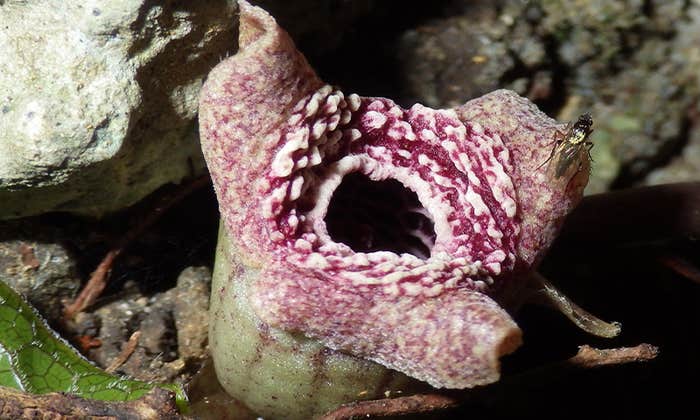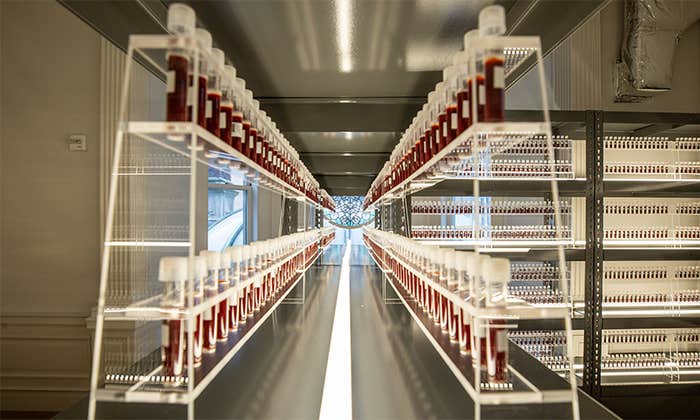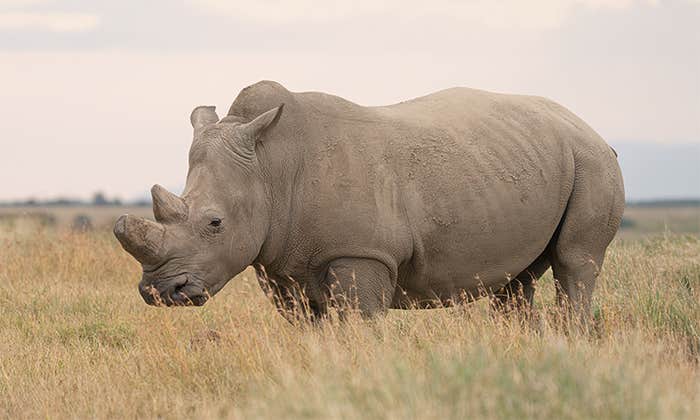Siddhartha Mukherjee feels his science deeply. As much as any contemporary science writer, he reminds us that the actors, subjects, and interpreters of science are human beings. His most recent book, The Gene: An Intimate History, is nominally about the modern science of genetics. “But of course,” he explains, “that book is about identity.” The identity of normal and abnormal, of fate and chance, and of the family—particularly Mukherjee’s own family, which has been plagued with hereditary mental illness.
Deeper still, it’s about how society sees itself. The gene, Mukherjee claims, is a destabilizing idea because of the extraordinary new powers it grants us over ourselves and each other. When does it break down, he wonders, and what happens when it does? “What happens when the idea of the gene becomes contorted into a mechanism to control identity? To control populations? As has happened, not just once, but several times in our history?”
In conversation, as in his writing, Mukherjee makes clear his passion for understanding not just science, but also its many contexts and points of intersection with the cultures that practice it. “What I care about the most,” he says, “is how is knowledge produced? In what space? How does that knowledge enter society?”
There is a metaphor that appears more than once in The Gene, and which Mukherjee brings up in conversation, of a refracting prism: Genes, he says, can be understood as a lens through which destiny is refracted. We can extend the prism metaphor, I think, without too much risk, to Mukherjee himself, and understand him as a refractor of the lessons and practice of science for all of us.
Siddhartha Mukherjee sat down with us at the Nautilus offices this month.
View VideoInterview Transcript
How is genetics changing medicine?
It allows us, first of all, to understand the body in a fundamentally different way. I think of it as reading and writing in some ways. Reading the genetic code allows us to make predictions about future disease—or the current disease that a person has, but with a great, great, great degree of accuracy. Of course, genes are only one part of the equation—genes, environments, and chance intersect to produce phenotypes. And many diseases cannot be predicted by genes alone.
But, for instance, we are now discovering that there are parts of the genetic code that would predict your future risk for Alzheimer’s disease even before you have the actual disease. Future risk for breast cancer, if you have mutation BRCA1. Broadly speaking, that is a kind of reading—metaphoric reading, understanding the disease before it happens.
There is a flipside to this, which is even more provocative, [and that] is writing; by writing, I mean when you actually make intentional, deliberate changes in the genetic code to change the disease process or the future … That starts with gene therapy, usually by putting in viruses to carry in new genetic material into certain cells of the body, but more and more these days, we’ve learned techniques—we, as a community of scientists have begun to learn techniques to make intentional, deliberate changes in the genome without using any viruses—very, very subtle changes. Erasing one nucleotide basically and substituting it for a different nucleotide.
It’s opened up another totally new way of writing the human genome, writing it in ways that are deliberate, that are intentional. So, that’s the new language of medicine now, reading and writing the human genome.
Many of the new medicines that are being produced are the consequence of the genetic code. They’re not chemicals, they are antibodies. Not antibiotics but antibodies—things that are proteins that are made by the body to attack certain cells, to kill cancer cells. Herceptin’s a great example. There are many, many more that are changing the way we think about medicines.
Insulin is a great example. You know, it’s a protein. It has to be manufactured as a protein. It’s not like an antibiotic. It’s also a chemical of course, but it’s a very unique kind of chemical, made by our own body. The most common way to make insulin is to make it using genetic technology. To make it, you genetically engineer a cell to produce insulin.
One would hope eventually that all of these crisscrossing metaphors or really, modalities of medicine will crisscross with each other, that you’ll be able to deliberately make genetic changes, predict genetic propensities, and ultimately use genetic technologies to alter physiology in very, very profound ways—very creative and profound ways.
What do you mean when you talk about “personalized medicine all the way down?”
I think one of the things that we’re realizing more and more in medicine is that medicine exists at an interface between your particular genetic propensities and the pharmacopeia of medical technologies that we have. These two things have to be brought together. So right now, just to give you an example, in infectious disease, we are beginning to figure out how particular organisms in particular bodies respond to particular kinds of antibiotics. We will try to understand this in regenerative medicine. What makes one person’s blood system, for instance, regenerate more efficiently after chemotherapy versus another person’s blood system regeneration after chemotherapy.
So, by “all the way down,” I mean the precision medicine: The idea of precision medicine, is to match the medicine with your particular self, and by self it’s very important to note that by “self,” I don’t just mean genes. It means your physiology, it means your biology, even the environment that you particularly live in; the medicine has to match it. And, that is actually … You know, people think we’re talking about it as if it’s a new idea, [but] of course, it’s an idea that comes to us from medicine from 1,000 years ago. It comes to us from Avicenna; it comes to us from the very first doctors who made the observation that the medicine must match the patient, rather than the patient matching the medicine.
As we explore individual data points more deeply—individual genomes, individual physiologies more and more deeply—this is going to become par for the course in medicine I hope; because otherwise, we’ll still have the problem that many medicines don’t work for many people.
Does personalized medicine fracture the standard medical trial?
It becomes fractured. So two points I’ll make about it: Number one is that we know from cancer medicine that fracturing is very important. If you don’t do the appropriate divisions, the appropriate splitting, you could get a bad trial. Good medicine plus a bad trial is a bad outcome. Let me just give you a classic example. Tamoxifen, which is extremely effective in one particular form of breast cancer—genetically annotated, one particular form of breast cancer is ineffective—[is] totally ineffective in another particular form [of breast cancer]. If you ran the trial lumping all of those things together, we might not have discovered the effect of Tamoxifen. We’d still be searching in the dark. So it’s a requirement of certain medicines already that they be genetically annotated before the medicine is even given to a patient; that’s point number one.
The second point here [is] that these trials will absolutely become more fractured, because the responses that people are having to these new medicines are very, very dependent on the individual physiologies, the individual biologies, the individual genetics. So we’ll have to find ways to annotate them, often before even the trial is launched. That just seems like, at least with cancer, we know that that seems like the way of the future.
You could be the only person on Earth for whom a particular treatment is effective. You asked an important provocative question. We don’t even know what “normal” is. What is normal? In the old days we would find normal by plotting a kind of curve around a standard point; [we’d] say, “Well, if you have one standard deviation across that you’d be ‘normal.’ ” But of course, you’re the new normal—the new control normal is you, in your health, and when you deviate from that—from your health—you fall outside that new normal.
In fact, there’s an exciting project—Eric Topol is leading an exciting project with a bunch of other people in California trying to figure out what “normal” is. Part of that is going to be—it’s a very large NIH-driven project—to put sensors into hundreds of thousands of men and women and ask the question, what’s normal heart rate for you? What’s a normal blood pressure for you? What’s your baseline? When you tip over that baseline and cause disease, are those genetic propensities things that can be understood? It’s one of the most exciting projects.
You’ve described genetics as a destabilizing idea. Why?
To understand why genes have a destabilizing impact on our culture, we have to understand what genes are allowing us to do, what genetic information is allowing us to do.
First of all, let me be very clear, most human traits, phenotypes—including diseases—are not encoded by single genes. They’re often networks of genes that are responsible for most of [the] complex traits in human beings. There are exceptions to this—and you talk about several of them—but most human traits are the consequence of gene environment and chance interactions. So, that has to be the background to all of this.
Now with that background in mind, [and] as we’ve learned to understand and decipher the influence that genes have on our individual lives, [we] all of a sudden get to the question of, how much we can manipulate that? How much can we manipulate an individual human being’s life by reading or writing, or understanding or deciphering their individual genetic code? On [the] one hand, this unleashes profound power to make new medicines. But on the other hand, it also comes with an enormous degree of responsibility. How much deciphering are we going to do?
You know, the one word that I find very troubling, but also exciting and provocative, is the word “previvor.” The word “previvor” [describes] a survivor of a disease that you haven’t yet had. As we move forward in a more and more deeply genetically-annotated era, where individual genomes are going to be scanned and deciphered for future propensities—like a report card given in, as I said, in statistical propensity—we will begin to enter a weird age of previvors. That is a destabilizing idea in our culture.
What if I begin to understand you as pixels of information that change your leanings and propensities toward one future fate or another fate? What if I wanted to control that? What if I wanted to manipulate that information? What if I wanted to have a child with only one set of such propensities and not another? What if I made a state mandate that children with one set of propensities would be favored or allowed or given certain tests or privileges—or the other way around? So these, I think, are ideas that our culture is already confronting, and I think they’re incredibly important ideas.
What is the moral boundary between using genetics to prevent disease, and using it to enhance ability?
First of all, what is disease? Disease is an entity that usually is a form of disability that exists in a particular environment. Both parts of that equation are important. A hairless man in Antarctica is diseased, in exactly the same way that any genetic propensity changes its relationship with the environment. First of all, we need to understand what disease means.
The question you’re asking is what the boundary is. That boundary is constantly shifting. Just to give you an example, many psychiatric illnesses diagnosed [today] weren’t diseases 20 years ago. Many things that were diseases 20 years ago, including homosexuality, are obviously not diseases at all, and particularly not recognized by many current societies. So these boundaries keep changing. We have to be extremely careful about allowing the boundaries to be flexible because the minute we draw strong lines, I think we begin to make important mistakes that we’ve certainly made before in our history.
In the book, The Gene: An Intimate History, I point to a triangle that has been helpful in restricting our opening of this Pandora’s box. There are three sides of the triangle. One side is that when we choose to intervene on genetic mutations, we choose to intervene on mutations where the relationship between the mutation and the disease is relatively 1-to-1. In other words, highly polygenic mutations, where there are multiple genes exerting small effects should not be [intervened upon] because we don’t know what the unintended, intended consequences are … we don’t even know how to intervene on them in a thoughtful way right now.
The second axis—it’s a very important axis, and that is extraordinary suffering. So the first axis, just to use a technical term for it, is penetrance. We would intervene on genetic mutations where the penetrance is established and high. The second is extraordinary suffering; we need to have some mechanism to assess that in our current environment, that that mutation truly causes extraordinary suffering. Now, that is a subjective idea, but nonetheless, there should be a strong line. You know, color of hair is not extraordinary suffering but certain genetic propensities may be extraordinary suffering given cultural discourses around what happens to whom in this world.
And the third line is that all of this has to operate within the boundaries of freedom. We cannot revisit the state-directed mandates that existed in, for instance, Nazi Germany, and other places, where genetic intervention was not a matter of choice. You should be able to have a child with whatever genetic variations you happen to have or choose to have [and that is] as long as there are no powerful state mandates or restrictions of choice against them.
These three boundaries of the triangle—extraordinary suffering, high penetrance, and freedoms of choice—are, I think, important boundaries to respect as we move into a more genetically manipulable universe where we start asking questions like, “What shall we change?” “How shall we change it?”
How has modern genetics changed our ideas of chance and fate?
I try to make a metaphor several times in the book, The Gene: An Intimate History, which I think is helpful—and that is to say that genes [can] be understood as lenses through which chance are refracted. What do I mean by that metaphor? I mean that, in fact, genes or genetics, allows plenty of space for us to interact with environments and with random acts of fate and chance, and thereby, in a kaleidoscopic way, create different outcomes, different cells, different beings, different individuals. I don’t think that there will be a one to one equation that, you know, destiny, character, genes—although, as I’ve mentioned before, the influence of genes on character and temperament and destiny is perhaps more surprising than we had imagined even ten years ago.
That said, we as beings, I think, as organisms, as genetic creatures, have left enough room for our genes to be really lenses through which destiny is refracted. Obviously, if you change the lens, change the genetic makeup, you will get a different refraction; but it only exists as an interaction, or intersection, between destiny, chance, environment, and genes themselves.
So the beauty of the genome is that it can make the real world stick in a way that even identical genomes—twins—often end up with—or, largely identical genomes, I should say—often end up with very different individual fates; and what’s remarkable is that attempts to systematize that—studies that have attempted to systematize that—have come up with this sort of empty black box. That empty black box is random, it’s environment. You take two identical genomes and you superpose the vagaries—even small vagaries—of chance and environment on those two genomes and you get two very different beings out of it.
It seems so obvious; but on the other hand, there’s a surprising truth there, which is—and it’s telling you right there, it’s the natural experiment telling you right there—that two exactly identical genomes superposed on small vagaries of chance and environment yield two very different individual beings.
So rather than speaking about destiny as if it was a cloud, a gray cloud, we can begin to speak about it—about destiny, about self, about future propensities, however you want to call it—in terms of very incisive information about particular genomes correlating or coexisting with particular environments; and you might find that this end of destiny, this end of the self, has aspects that are strongly genetically determined. Those, ipso facto, will be parts that we could potentially change or monitor; we could read! We could ask the question, “What happens when you put schoolchildren with these kinds of genes versus schoolchildren with these kinds of genes in the same classroom?” Right?
That is no longer a kind of gray cloud, “Oh, all destiny is the same. Let’s just be wishy-washy about gene environmental interactions.” The appropriate dissection of these, and the appropriate understanding of the autonomy of each of these interactions allows us, I think, to manipulate human beings and understand human beings to profound effect, and with profoundly dangerous consequences. I mean, that’s the center of the book. That is literally the center of the book.
How is genetics challenging our power to interpret narratives about ourselves?
What if instead of getting a [standard] report card, instead of getting A’s B’s and C’s and, D’s—hopefully not D’s, but—you got a report card [that] said your propensity for getting an A is 7 percent. Your propensity for getting a B is 24 percent, et cetera, et cetera. What would that report card look like? We would not know how to judge a human being’s performance or who they were if that was your report card—but that’s of course what the genomic report card can look like.
Now for individual propensities … diagnosing whether your child has a cystic fibrosis gene, [for example], that child will certainly have some variant of the disease—it might be a milder or more acute [situation] depending on the background of other genes—but certainly will have some variant of that abnormality. So for certain genes, that understanding can be very clarifying, there’s going to be a lucidity about it. Talk to a woman who knows that she has a BRCA1 mutation, and carries the future risk of breast cancer, and other cancers. Villus diagnosis (villus sampling) for genetic syndromes, including Down syndrome, is now part and parcel of our normal lives. We grokked that, as you said, without much … The reason in all of these cases was, again, generally speaking, there was a high degree of penetrance between the genetic lesion, change, the variation, and then the final outcome.
We are entering an era where we’re pulling back that one to one equation, asking more complicated questions about what if variation A plus variation C plus variation D increased your propensity for mental illness by 18 percent? Do we have the narrative power to grasp that? I’m not sure we do. Even doctors who are trained to have this kind of Bayesian narrative power—what is the prior probability and what’s going to happen to the real outcome—struggle with that narrative power; we struggle with that all the time. Is our culture capable? I’m not sure.
But remember also, narrative powers in human beings change all the time. We didn’t have the narrative power to deal with vast amounts of simultaneous information streaming into us from a third party source, from a non-encyclopedia source and yet, in 10 years it’s part of the narrative, part of human life. As I said, our children will deal with it—they’re already dealing with it—and this will become an animating question for their generation.
Where does your very personal view of science come from?
Virtually everything that I write about comes from the practice of medicine. I run a laboratory, I’m a cancer biologist, I’m a cancer geneticist, but my own identity, my self, was shaped by the practice of medicine, and I still see patients. That idea of taking something that seems relatively abstract and making it real—because it is real, it is the most … Just to give you an example, someone said, “You’re writing a book about genes!” But of course, that book, The Gene: An Intimate History, is about identity; because we’ve covered this territory extensively during this one conversation, over and over again.
So then the question becomes, “Well, how on Earth are you going to write that book if you don’t talk about yourself?” That’s the center of the [other] book, The Emperor of All Maladies: A Biography of Cancer, the first book on cancer; it is not a coincidence that I was writing the book as an oncologist. How could you write that book, how could I write that book without putting that story first? I mean certainly I’ve written … I write scientific papers, they’re dispassionate—I don’t write about my own agonies about what happened to my cousin in a scientific paper. But in writing about this kind of science, it’s so colored by my own experience of medicine that I just can’t think of any other way to do it. It’s the only form that makes sense to me.
Do you have a particular interest in taboos?
That’s an interesting question. I’ve actually never been asked whether I have a particular interest in taboos. I’m certainly interested in how cultures can take stories and pervert them. And by cultures, I don’t only mean Germany in the 1930s; I also mean in the culture of medicine in 2016, the culture of patients and patient groups in 1994, just to pull three very different examples.
The center of what I care about the most is, how is knowledge produced? In what space? How does that knowledge refract—to go back to the genes analogy—how does that knowledge enter society? What happens in the location, what happens in the real space? How does it get perverted? When does it break down? What happens when it breaks down? What happens when the idea of the gene becomes contorted into a mechanism to control identity, to control populations, as has happened not just once, but several times in our history. What happens when a disease, when the name of a disease becomes equated with the stigma. Does it change the way we think about science? Does it activate a certain kind of resistance? How does the knowledge change? And that’s been a sort of, constant theme that I’ve come back to.
What would you be if you weren’t a scientist?
I would be a musician if I could be. I trained as a vocalist, as a classical Indian vocalist, and continued for years and years and years.



























